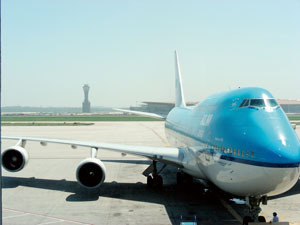 Jet Lag Drag
Jet Lag Drag
Any expat knows the symptoms of jet lag – waking up at odd hours of the night, crashing during mid-afternoon and developing a cranky disposition. For families traveling overseas this summer, it’s best to try to lessen the effects of jet lag as much as possible since the time difference adjustment can be harder on kids.
This temporary disorder causes fatigue, insomnia, dehydration, headache, nausea, and irritability but there are ways to manage it. Evidence shows that that flying westwards causes less jet lag than flying eastwards, but although we can’t control the direction, here are some applicable tips:
Before Takeoff
Exercise before flying is thought to aid sleep while onboard. Adjust your watch to the new time zone to prepare for the time change. Bring a sweatshirt or sweater as flights can get chilly and airplane blankets can be rife with germs.
In-flight
Make use of ear plugs, sleeping masks, and neck pillows. Flying causes dehydration, so it’s best to drink lots of water (which is more hydrating than tea and coffee). To prevent deep vein thrombosis (blood clots), move limbs often. Walk up and down isles, stand, stretch, and pump calves while sitting. This will also help with swelling. Get up to wash your face or brush your teeth. Wear loose-fitting clothing for comfort. Remove footwear during the flight, as this will cause more swelling and likelihood of blood clots.
Post-Baggage Claim
Head for sunshine. Try to resist sleeping if you arrive morning or mid-day and make it until sunset before crashing. Eat at regular times according to the new time zone. These psychological cues will help bodies adjust faster. Try to feed kids healthy foods and make sure they drink plenty of water.



